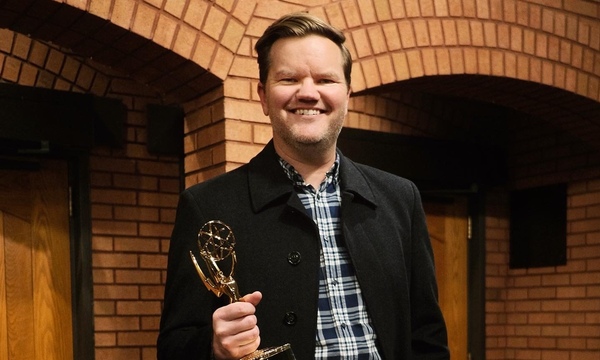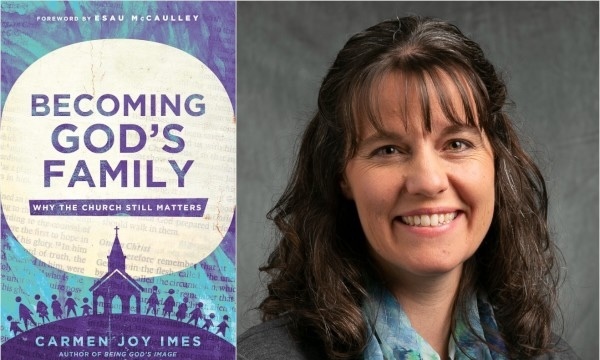William Lane Craig is known for many things: Biola’s Research Professor of Philosophy, founder of ReasonableFaith.org, author of dozens of books, audio, and articles, a conference speaker and lecturer, and a world-renowned debater.
But since 2003, he has also been on the march co-laboring with the Evangelical Philosophical Society (EPS), where he served two terms as President, in order to bring solid, Christian thinking to the streets of America’s cities, such as Atlanta, San Diego, San Antonio, Providence, Valley Forge, and New Orleans.
Every year, under the direction of Craig, the EPS (a sister society of the Evangelical Theological Society) has rallied a couple dozen top-notch scholars and leaders to volunteer their time in order to teach people in a local setting about how to defend the truthfulness of Christianity.
“Each year the EPS apologetics conference provides an opportunity for us to bring the fruit of Christian scholarship out of the ivory tower and make it accessible to the man in the pew,” says Craig. “It’s an opportunity for Christian philosophers and biblical scholars to share with lay people their knowledge and research in a particular area.”
Institutionally speaking, it’s not accidental that such a conference endeavor would flow out of Biola’s heart and mind: many Biola faculty and students are active members in the EPS, Philosophia Christi (a peer-reviewed journal of EPS) is produced under the editorial direction of Craig Hazen, director of Biola’s Graduate Program in Christian Apologetics, and the conference environment typifies the sort of servant-leadership that is signature of Biola’s pastorally-minded faculty.
At the conference, held November 19-21, 2009, several Biola faculty and alumni contributed to fruitful equipping at New Orleans Baptist Theological Seminary, the host of the seventh annual conference. More than 500 people descended upon New Orleans, coming from as far as New Brunswick, Canada, and more regionally from Louisiana, Mississippi, Arkansas, Alabama, Texas, Georgia, and Florida.
With the support of Biola’s Christian Apologetics Program, over twenty sessions were offered at the conference, including a special session for pastors and the local church, and a unique track devoted to apologetics and youth.
Biola’s Distinguished Professor of Philosophy, J.P. Moreland, delivered a plenary address for the pastor’s session at the conference and then a plenary address for opening night of the conference. Echoing his award-winning Kingdom Triangle, at both talks Moreland envisioned the task of Christian apologetics in the power and presence of the Kingdom of God, and sought to show how pastors are indispensable to the formation of disciples that can offer reasons and evidences for the truthfulness of Christianity. Moreland sought to encourage all in attendance to recognize that their belief or faith is rooted in knowledge of reality.
Other notable Biola speakers at the conference included Professor of Philosophy of Religion and Ethics Doug Geivett, and Biola alumni Greg Koukl, Sean McDowell, Toni Allen, Mary Jo Sharp, and Brett Kunkle.
Doug Geivett’s topic evidenced the larger cultural relevancy of Christian apologetics work by showing “how the current economic crisis is traceable to a deterioration of family values and general moral decay.” Geivett sought to show that “Christianity is the last great hope for a civilization bent on self-destruction”; his emphasis on the family echoed other conference talks that he’s given related to the home as a place to learn apologetics.
M.A. Philosophy of Religion alumnus Sean McDowell (Head of the Bible Department at Capistrano Valley Christian Schools) and current student Brett Kunkle (Student Impact Director, Stand to Reason) co-taught a track of apologetics training devoted to youth, youth workers, and home-schoolers. Drawing upon their diverse and broad experience, in four different sessions they sought to equip people about how to respond to atheist objections, how to defend the nature of objective truth from relativism, the case for intelligent design in the universe, and how and why the Bible is trustworthy.
The final plenary talk of the conference was given by M.A. Philosophy of Religion alumnus Greg Koukl, founder and Director of Stand to Reason. Echoing his famous Tactics (Zondervan, 2009) book, Koukl sought to show attendees how to move “from the content to the conversation without the casualties.” Koukl, an experienced translator of academic discussions for non-academic readers and listeners, offered substantial guidance for how to help interact with people’s worldview questions.
Over the years, these Biola supported conferences have become so noteworthy that even the Christian publishing world has begun to take stock of their content and its readership. For example, Broadman & Holman Academic has already published two volumes (co-edited by Craig and Paul Copan) that capture in print form what the conferences have presented in different cities. The latest book in the series, Contending with Christianity’s Critics, is positively reviewed in the forthcoming January/February issue of the Christian Research Journal, the widely-circulated publication of the Christian Research Institute.
The apologetics conferences of the EPS have not only offered seven great years of equipping, but they are evidencing the emergence of Biola alumni to the platform. In 2010, the conference will be held at William Lane Craig’s home church: Johnson Ferry Baptist Church (Marietta, Georgia), which is where the first conference was held.
Audio from the 2009 apologetics conference will be available to purchase and download in January 2010 at www.epsociety.org.
More than 20 professors from Biola University participated as panelists or presented academic papers at the 2009 Evangelical Theological Society conference with professor Scott Rae giving a plenary address. Read more on Biola's involvement at ETS conference.
Written by Joseph Gorra, Christian Apologetics
 Biola University
Biola University
.jpg)

